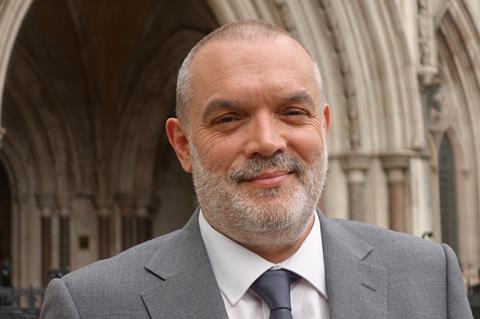The two bêtes noires of personal injury firms have joined forces to continue pursuing costs claims. Mark Carlisle, founder of the Checkmylegalfees.com website, announced last week that he has linked up with the Leeds firm JG Solicitors. Both practices have pursued thousands of claims against law firms trying to recover money that was deducted from client damages.
The results have been mixed, but the costs chasers’ activities appear to show no sign of stopping, with the High Court last month ruling that a former client should have more information about a £750 payment made to a Gibraltar-based company amid accusations about potential commission payments.
Carlisle said he had worked in an advisory capacity on several cases handled by JG Solicitors for some time and was keen to formalise the arrangement.
He added: ‘The combined team will provide unparalleled expertise to clients in all areas of the law who have concerns that they may have been overcharged by their solicitors, as well as more traditional “costs services” to members of the public.’

Read more
The High Court ruling in Turner v Coupland Cavendish Ltd will be hailed by JG and Carlisle as a success and an indication there is still a market for the work they are doing.
Stephen Turner, a former client of Manchester-based Coupland Cavendish, had brought an appeal against the refusal of Costs Judge Rowley to order replies about how the cash account had been handled.
In particular, Turner, who was represented by JG Solicitors, wanted more detail about potential links to a Gibraltar company which had received a net payment of £750 from his settlement monies. The costs recovery solicitors expressed concerns that the company, AJG Limited, was potentially owned by Coupland Cavendish or connected with it, and had undertaken no work for the client. The firm characterised these Part 18 requests as a ‘fishing expedition’ which required no response.
The costs judge had opted not to compel the provision of the identifying company number for AJG Limited, relying on a ‘general principle’ that a defendant is not normally obliged to provide information ‘where such information can be obtained elsewhere’.
But following an appeal, Mr Justice Sweeting ruled that the client had a ‘legitimate interest’ in understanding the nature and payment to AJG Limited. He also ordered that Coupland Cavendish answer requests on ATE commissions, saying the only threshold for this was that the information must relate to a matter in dispute in the proceedings.
‘The fact that undisclosed commissions are acknowledged to be a feature of some litigation arrangements which involve ATE insurance, coupled with the unusual payment arrangements for the success fee in this case, provides ample grounds for a query to be raised,’ added the judge. ‘The information sought by the claimant can be easily provided. Ordering the provision of this information would not result in disproportionate expenditure or effort. Indeed, if no commission was received, the response will be simple. If a commission was received, it ought, arguably, to have been disclosed previously.’
This article is now closed for comment.



























8 Readers' comments